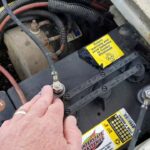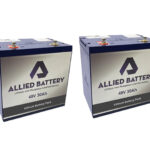As 48v golf cart batteries take center stage, this comprehensive guide delves into their world, exploring their benefits, types, maintenance, performance, safety, and cost considerations. Prepare to elevate your golf cart experience with in-depth knowledge and expert insights.
Discover the advantages of 48v batteries over other voltage options, empowering you to make informed decisions for your golf cart. Learn about the various types of 48v batteries, their pros and cons, and how to maintain and extend their lifespan.
Overview of 48V Golf Cart Batteries
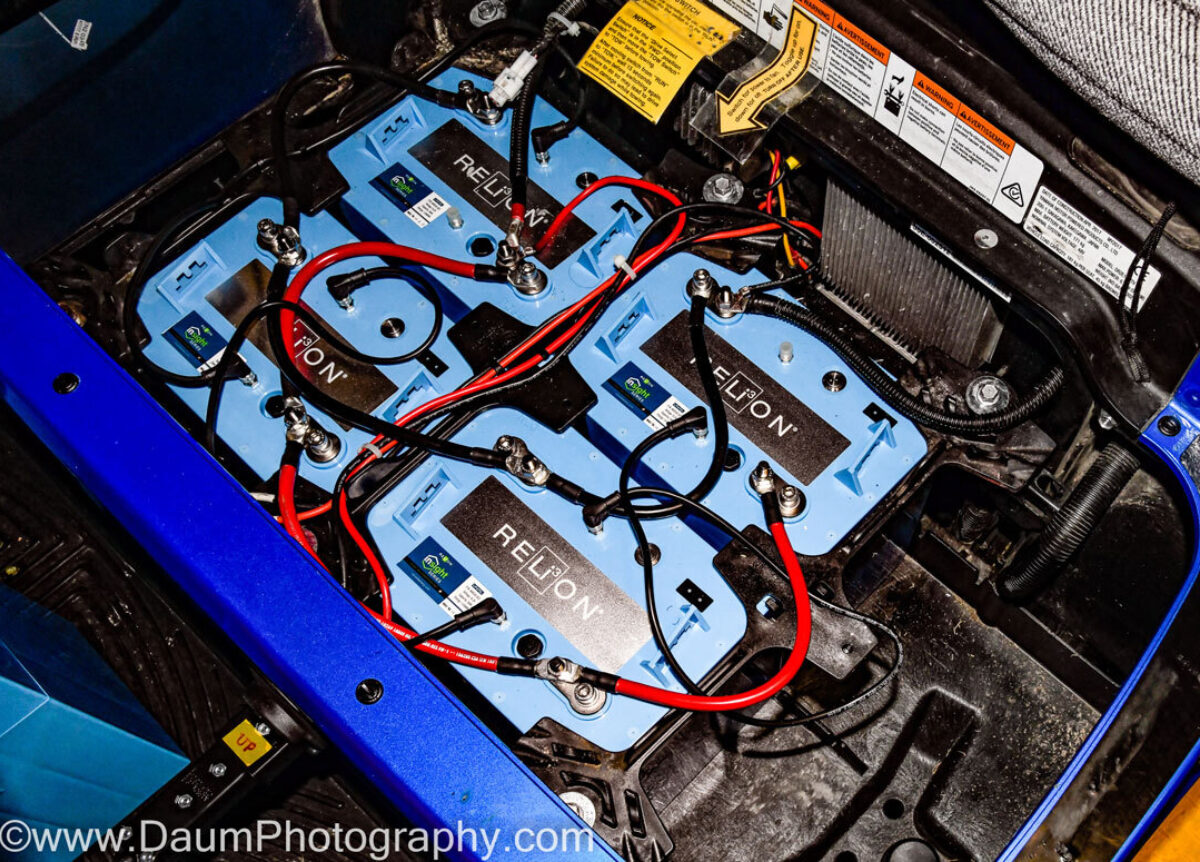
48V golf cart batteries provide an enhanced power solution for electric golf carts, offering several advantages over lower voltage options. They deliver higher torque and speed, allowing carts to navigate inclines and rough terrains more efficiently. Additionally, 48V batteries extend the range and runtime of golf carts, enabling longer playing sessions without the need for frequent recharging.
Comparison to Other Voltage Options
Compared to 36V batteries, 48V batteries provide a significant boost in power and performance. They offer higher voltage, which translates to increased torque and speed. This makes 48V golf carts more suitable for tackling hills and uneven surfaces, ensuring a smoother and more enjoyable driving experience.
48v golf cart batteries provide extended range and enhanced performance, but require specific maintenance and care. For those seeking a cost-effective alternative, 6v golf cart batteries offer a viable option. These batteries can be combined to create a 48v system, providing a balance between power and affordability.
However, it’s crucial to ensure proper maintenance and charging practices to optimize the lifespan of both 48v and 6v golf cart batteries.
In comparison to 72V batteries, 48V batteries strike a balance between power and cost-effectiveness. While 72V batteries deliver even higher performance, they come with a higher price tag. 48V batteries offer a practical and affordable upgrade for golf carts, providing a substantial improvement in power and range without breaking the bank.
Maintenance and Care of 48V Golf Cart Batteries
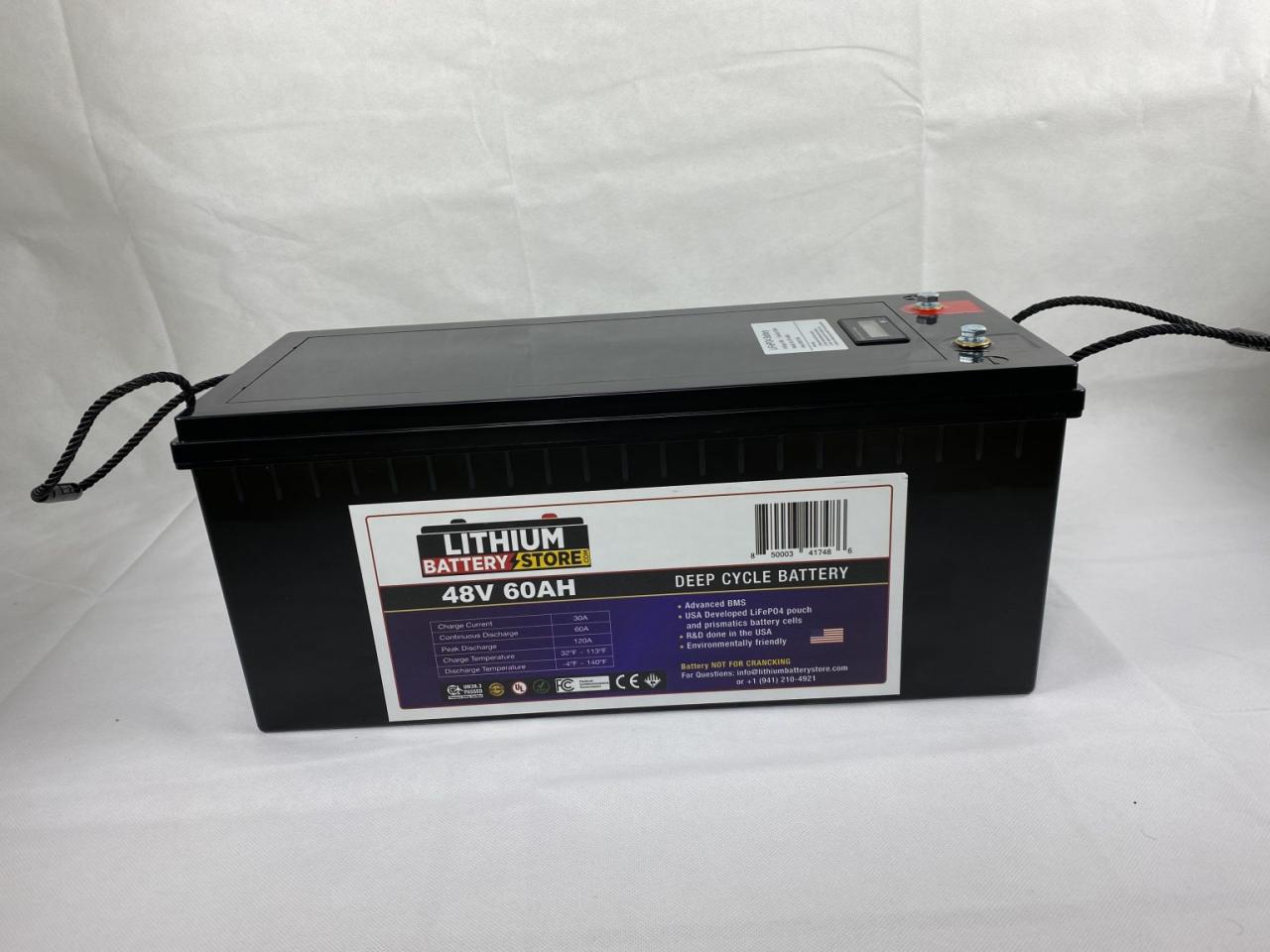
Ensuring proper maintenance and care of 48V golf cart batteries is crucial to prolong their lifespan, optimize performance, and prevent premature failure. Understanding the appropriate charging and discharging procedures, along with regular maintenance practices, will contribute to the longevity and reliability of these batteries.
To maintain and extend the lifespan of 48V batteries, regular maintenance is essential. This includes monitoring the battery’s water levels and adding distilled water as needed, keeping the battery terminals clean and free of corrosion, and storing the battery in a cool, dry place when not in use. Additionally, it’s important to avoid overcharging or discharging the battery, as this can significantly reduce its lifespan.
Battery Charging
- Use a charger specifically designed for 48V golf cart batteries.
- Follow the manufacturer’s instructions for charging time and voltage.
- Charge the battery in a well-ventilated area.
- Disconnect the charger from the battery when it is fully charged.
Battery Discharging
- Avoid deep discharging the battery (below 80% of its capacity).
- Recharge the battery after each use.
- Do not leave the battery discharged for extended periods.
Common Maintenance Issues
- Low water levels: This can lead to sulfation and reduced battery life. Check the water levels regularly and add distilled water as needed.
- Corrosion on terminals: This can prevent the battery from charging or discharging properly. Clean the terminals with a wire brush and apply a corrosion-resistant spray.
- Overcharging: This can damage the battery and reduce its lifespan. Use a charger with automatic shut-off and follow the manufacturer’s instructions for charging time.
- Over-discharging: This can also damage the battery and reduce its lifespan. Avoid deep discharging the battery and recharge it after each use.
Troubleshooting Tips
- Battery won’t charge: Check the charger, battery terminals, and cables for damage. Also, check the water levels in the battery.
- Battery won’t hold a charge: This could be due to sulfation, a damaged battery, or a problem with the charger. Have the battery tested by a qualified technician.
- Battery overheats: This could be due to overcharging, a damaged battery, or a problem with the charger. Stop charging the battery and allow it to cool down. Have the battery tested by a qualified technician.
Performance and Range of 48V Golf Carts
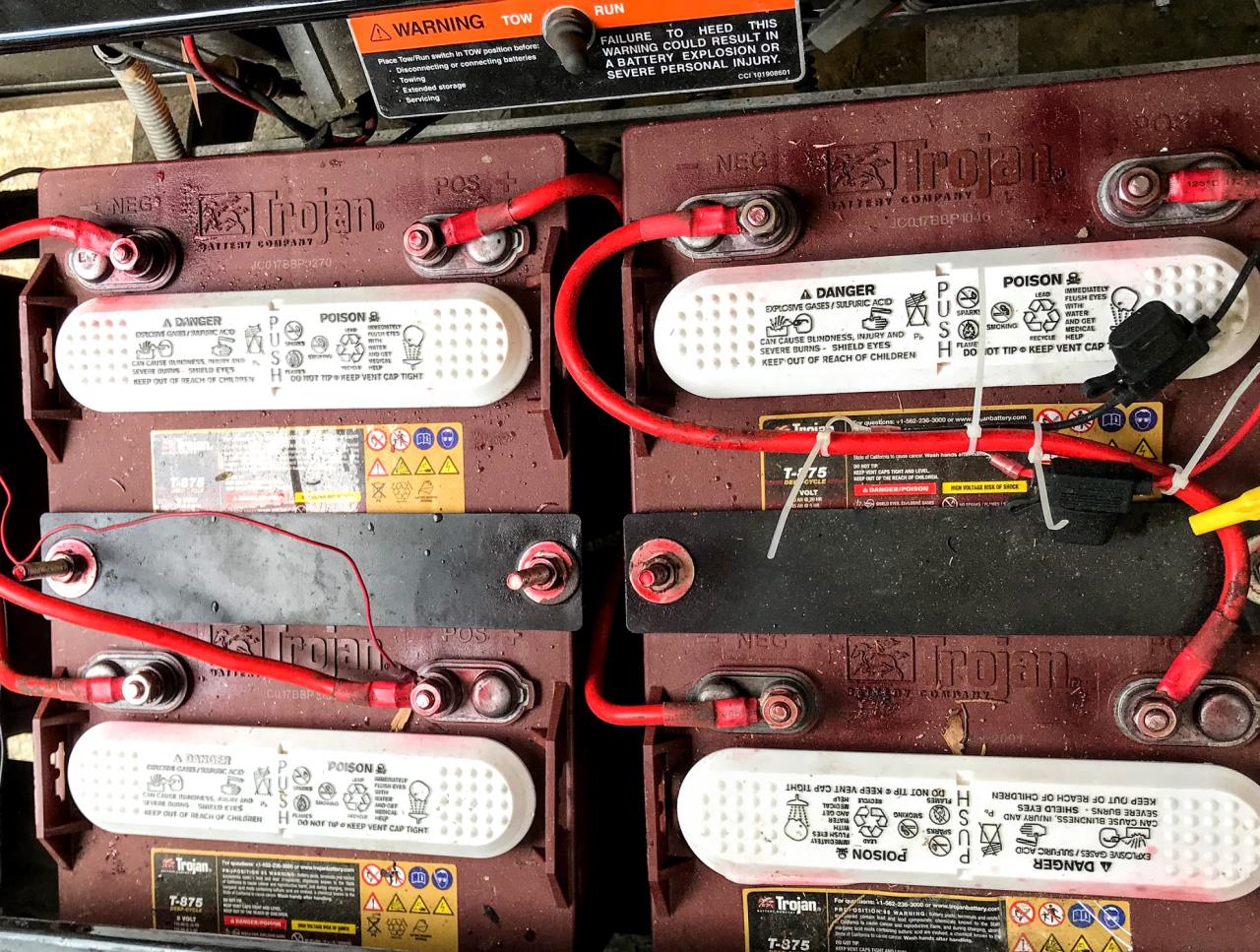
48V golf cart batteries significantly enhance the performance and range of electric golf carts compared to lower voltage systems. Here’s how:
Speed and Torque, 48v golf cart batteries
48V batteries provide a higher voltage to the electric motor, resulting in increased speed and torque. Golf carts with 48V batteries can typically reach higher speeds of up to 15-20 mph, providing a more exhilarating driving experience. Additionally, the higher torque allows for better acceleration and hill-climbing ability, making it easier to navigate slopes and uneven terrain.
Range
The range of a golf cart is primarily determined by the battery capacity and efficiency of the electric motor. 48V batteries typically have a higher amp-hour (Ah) capacity than lower voltage batteries, allowing for longer driving distances on a single charge. Depending on the battery capacity and driving conditions, 48V golf carts can achieve a range of 30-50 miles or more, making them suitable for extended rounds of golf or cruising around the neighborhood.
Safety Considerations for 48V Golf Cart Batteries
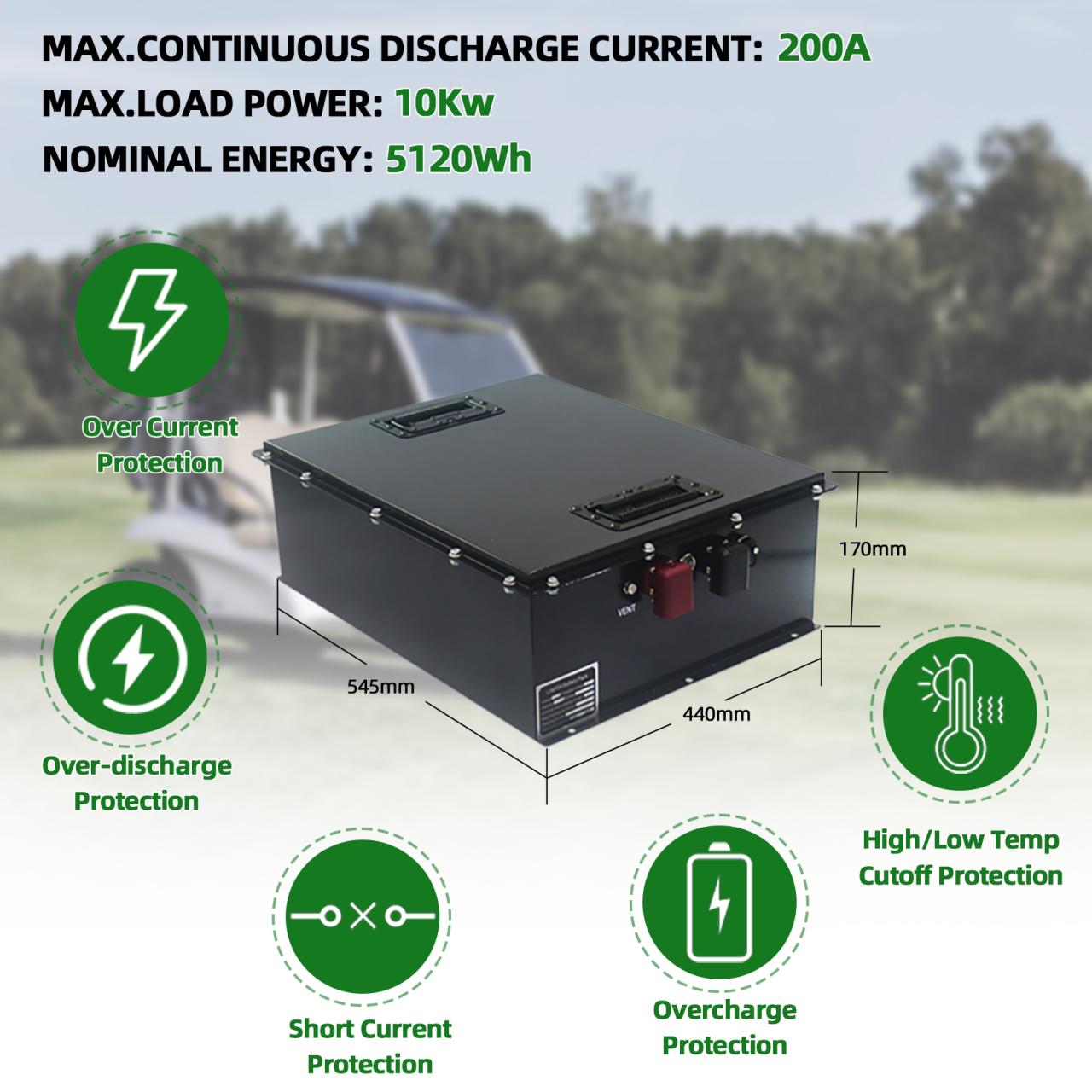
48V golf cart batteries can pose potential hazards if not handled, stored, and disposed of properly. It’s crucial to understand the risks associated with these batteries and follow safety guidelines to prevent accidents or injuries.
Potential Hazards
– Electrical shock: 48V batteries can deliver a significant electrical shock that can cause serious injury or even death.
– Fire: Overcharging or short-circuiting a 48V battery can cause a fire or explosion.
– Chemical burns: The electrolyte in 48V batteries is corrosive and can cause severe chemical burns if it comes into contact with skin or eyes.
– Environmental damage: Improper disposal of 48V batteries can release harmful chemicals into the environment.
Safety Guidelines
– Handling: Always wear protective gloves and eye protection when handling 48V batteries. Avoid touching the terminals or metal parts of the battery.
– Storage: Store 48V batteries in a cool, dry, and well-ventilated area. Keep them away from flammable materials and out of reach of children and pets.
– Charging: Use only a charger specifically designed for 48V golf cart batteries. Follow the manufacturer’s instructions carefully and never overcharge the battery.
– Disposal: Dispose of 48V batteries according to local regulations. Contact a hazardous waste disposal company for proper disposal.
Cost and Availability of 48V Golf Cart Batteries
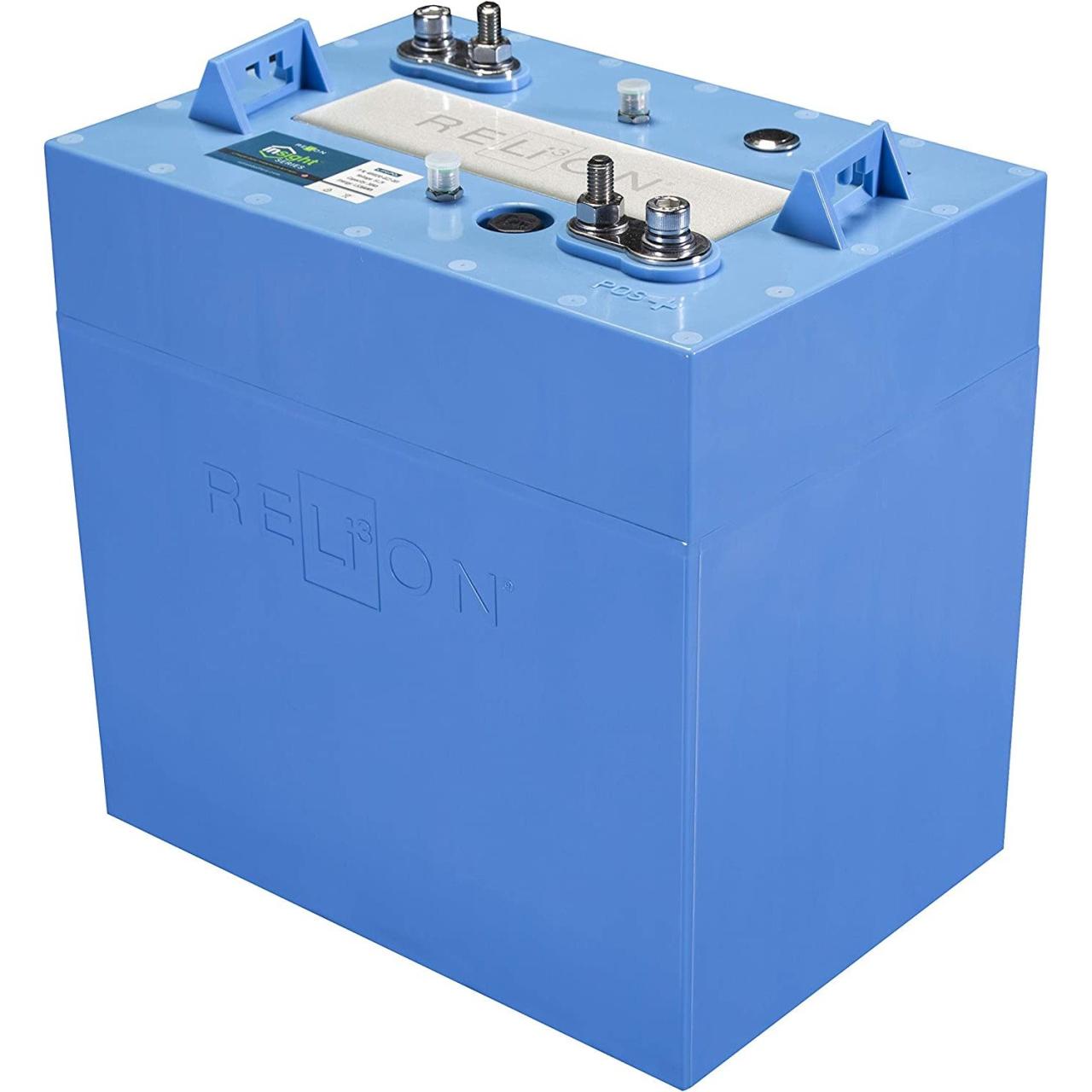
The cost of 48V golf cart batteries can vary depending on several factors, including the battery type, brand, capacity, and retailer. Lead-acid batteries are typically the most affordable option, while lithium-ion batteries are more expensive but offer longer lifespans and better performance. The capacity of the battery, measured in amp-hours (Ah), also affects the cost, with higher-capacity batteries costing more.
Where to Purchase 48V Golf Cart Batteries
48V golf cart batteries can be purchased from a variety of retailers, including online retailers, golf cart dealerships, and hardware stores. When choosing a retailer, it is important to consider factors such as price, reputation, and customer service. It is also a good idea to read reviews from other customers before making a purchase.
End of Discussion
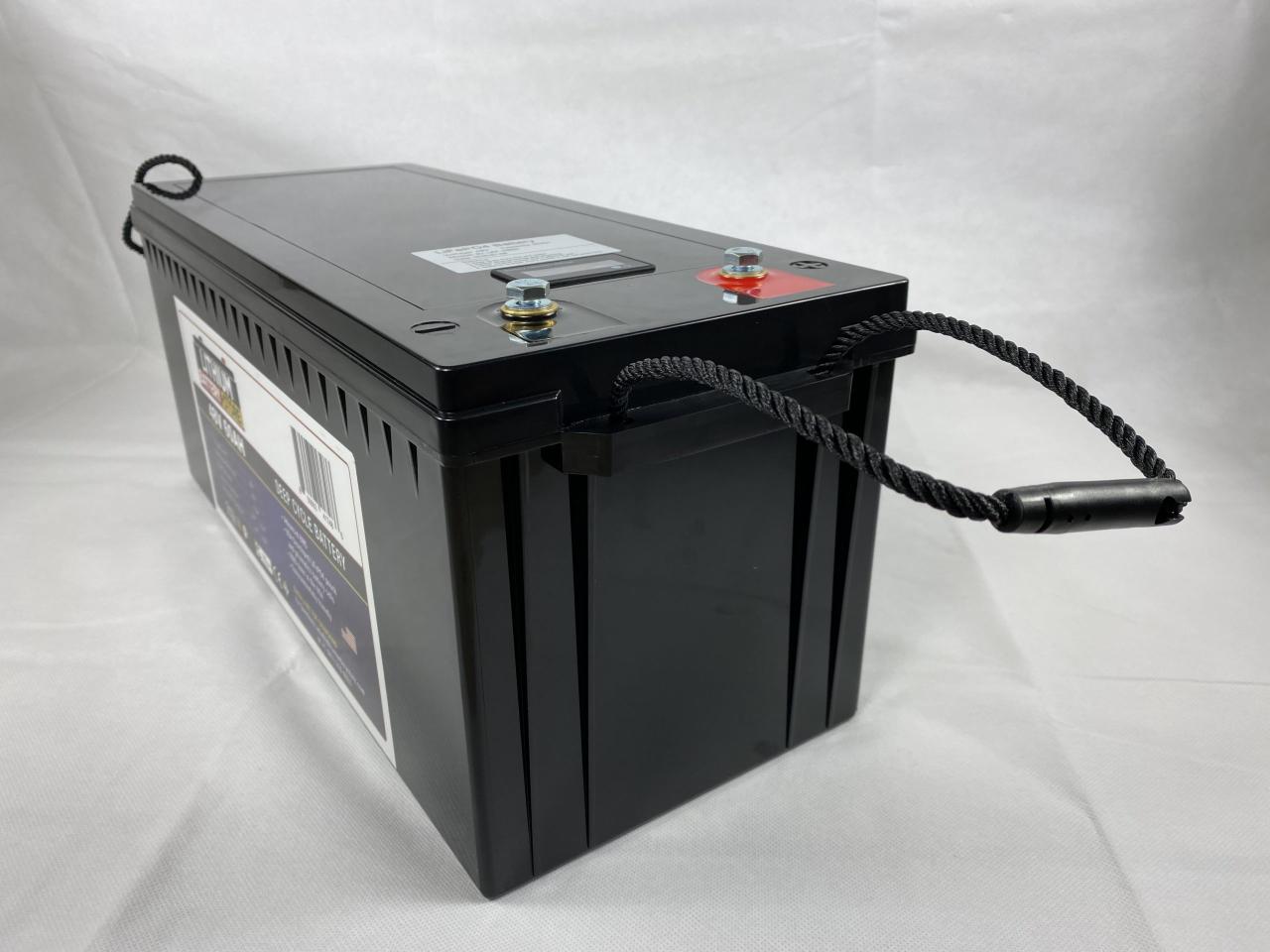
In conclusion, 48v golf cart batteries offer a compelling upgrade for enhanced performance and extended range. By understanding their types, maintenance requirements, safety considerations, and cost implications, you can optimize your golf cart’s capabilities and enjoy a more exhilarating and efficient golfing experience.

